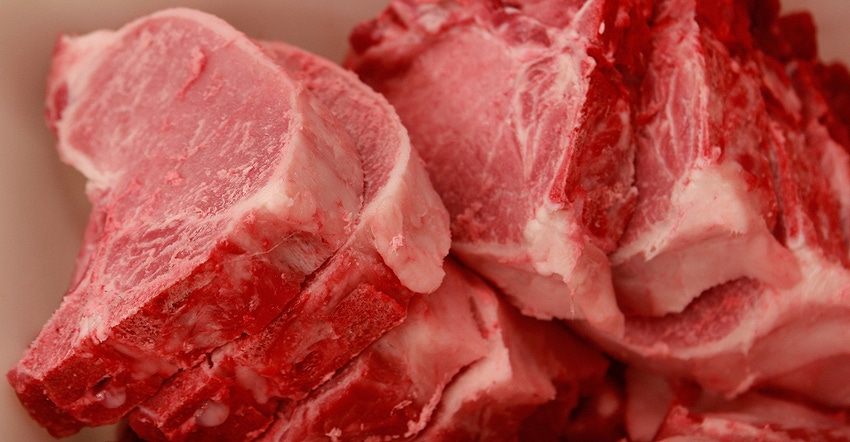
Many of us expected a ruling from the U.S. Supreme Court on the issue of California’s Prop 12, that was to go into effect Jan. 1, 2022. So far nothing has happened. Meanwhile, the Superior Court of Sacramento County, Calif., halted the enforcement of the law due to regulatory uncertainty.
Prop 12 is California’s new rule that states all pork sold in the state must have been produced based on its arbitrary, non-scientific housing standards. If the law stands, farmers from Mississippi to Minnesota and everyone in between who want to sell pork to the state’s 40 million inhabitants may need to invest millions in housing upgrades and allow California ‘inspectors’ to come on to farms to see if the law is being followed.
The Superior Court ruling noted that the plaintiffs wanted 28 months before the Proposition 12 regulations took effect, but the Court only gave just 180 days. Julie Anna Potts, CEO of North American Meat Institute, was quoted in Supermarket News as saying, “To enforce the law without final regulations leaves the industry unsure of how to comply or what significant changes must be made to provide pork to this critical market.” The American Farm Bureau Federation President, Zippy Duvall, said “California voters were told the law would improve animal welfare and food safety, but it fails to accomplish either of those goals.”
Similar law in Massachusetts
Much has been written about California but states like Massachusetts also have an animal welfare law similar to California’s Proposition 12. According to another farm publication, Massachusetts has had the good common sense to delay its law which would have gone into effect on Jan. 1, 2022. Massachusetts law “requires” that eggs be sold from hens who have at least 1.5 feet of space each. Massachusetts lawmakers were also told that the State and its citizens would only get about 10% of the pork they needed. The legislature in Massachusetts listened to their constituents and delayed the implementation of their ‘Question 3’.
Like California, Massachusetts has not published any final rules. There is a belief that the U.S. Supreme Court will not issue an opinion until California has implemented its final regulations.
California issued proposed Proposition 12 regulations on Dec. 30, 2021. California’s Department of Food and Ag put out a press release on Dec. 30, 2021 which said draft regulations were still being reviewed and this review was expected to be completed by mid-January, 2022.
The Department of Food and Ag said, “When this part of the process is complete, we will send the final draft regulations, along with all public comments and our responses to them, to California’s Office of Administrative Law.”
California claims “Proposition 12 reflects the will of the California voters, and it is a law that will likely influence food purchases in our state for years to come.” We know for sure a Superior Court has blocked the implementation of the regulations for 180 days, which takes us into this summer. The proposed regulations can be found in Chapter 10, Division 2, Title 3 of the California Code of Regulations.
Wrapped up in regulatory mumbo jumbo
Chapter 10 goes on for four pages and describes egg-laying hens. You will love Section 132.6 which is entitled “Inspection of Conveyances.” As you might guess, California can seize control of your shell or liquid eggs and hold them until it is convinced you have raised your chickens according to California standards.
Article three covers Breeding Pigs. You will immediately have your attention drawn to the Definition Section 1322 which describes the Audit trail. You can read the entire proposed definition but I will quote just a small portion of it as I am limited to the number of words in this blog: “…sale of whole pork meat that was derived from a breeding pig confined in compliance with section 25991 and 25992 of the Health and Safety Code in this Article and from pork producers that hold a valid certification as a certified operation issued to pursuant to Article 5 of this Chapter.”
This gives you an idea of what California is attempting to do to pork operations in this country. Only the U.S. Supreme Court can stop this madness. (And silliness!)
The opinions of the author are not necessarily those of Farm Futures or Farm Progress.
About the Author(s)
You May Also Like




